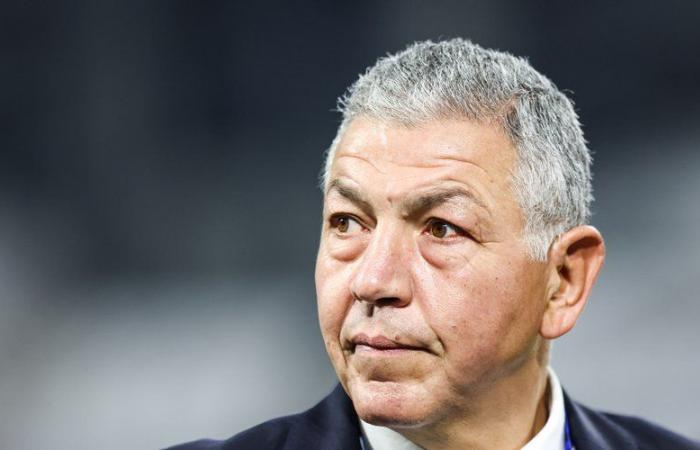Challenger in the election to the presidency of the international body, the former international second or third line did not manage to defy the predictions. The Australian Brett Robinson was elected this Thursday in Dublin by the “Council” and its 52 members.
Abdelatif Benazzi (56 years old) will not be, at least in the short term, the third Frenchman to occupy the presidency of World Rugby, after Albert Ferrasse and Bernard Lapasset. Organized this Thursday in Dublin, the election for the highest position of the body was won by the Australian Brett Robinson (54 years old), who was favored by the leaders after a second round against his tricolor opponent. Benazzi only received 25 votes (out of 52) in the second round. Insufficient to take over from Bill Beaumont. In the first round, the former player of the XV of France had collected 21 votes, recovering only four additional votes from the Italian candidate – who had collected nine – while the future president had obtained 22.
For Abdelatif Benazzi, the crazy bet was not crowned with success. The former French international declared himself late in the race for the presidency of World Rugby while the two other candidates – the Italian Andréa Rinaldo and the Australian Brett Robinson – had already expressed their desire and undertaken real work background. The second has been a member of the World Rugby Council for eight years and has been preparing his candidacy for several months. It was even said that he was dubbed by the current president Bill Beaumont. “The favorite is definitely Brett Robinson,” swore a member of the FFR vice-president’s inner circle. “But Abdelatif is an increasingly worrying challenger for his adversaries.” The race against time did not allow him to reverse the balance of power.
An alarmist speech
Brett Robinson, who had sixteen caps for the Australian team between 1996 and 1998 as a third row and who then worked for the Australian federation as general performance manager, presented his candidacy via an alarmist speech evoking an existential threat to rugby which, according to him, is being cut off from younger generations. He proposed various measures to act on the speed of the game and its attractiveness, while highlighting the financial problems which threaten the major nations.
It is now up to the former Wallaby to carry out these major projects over the next four years.
France
Rugby






